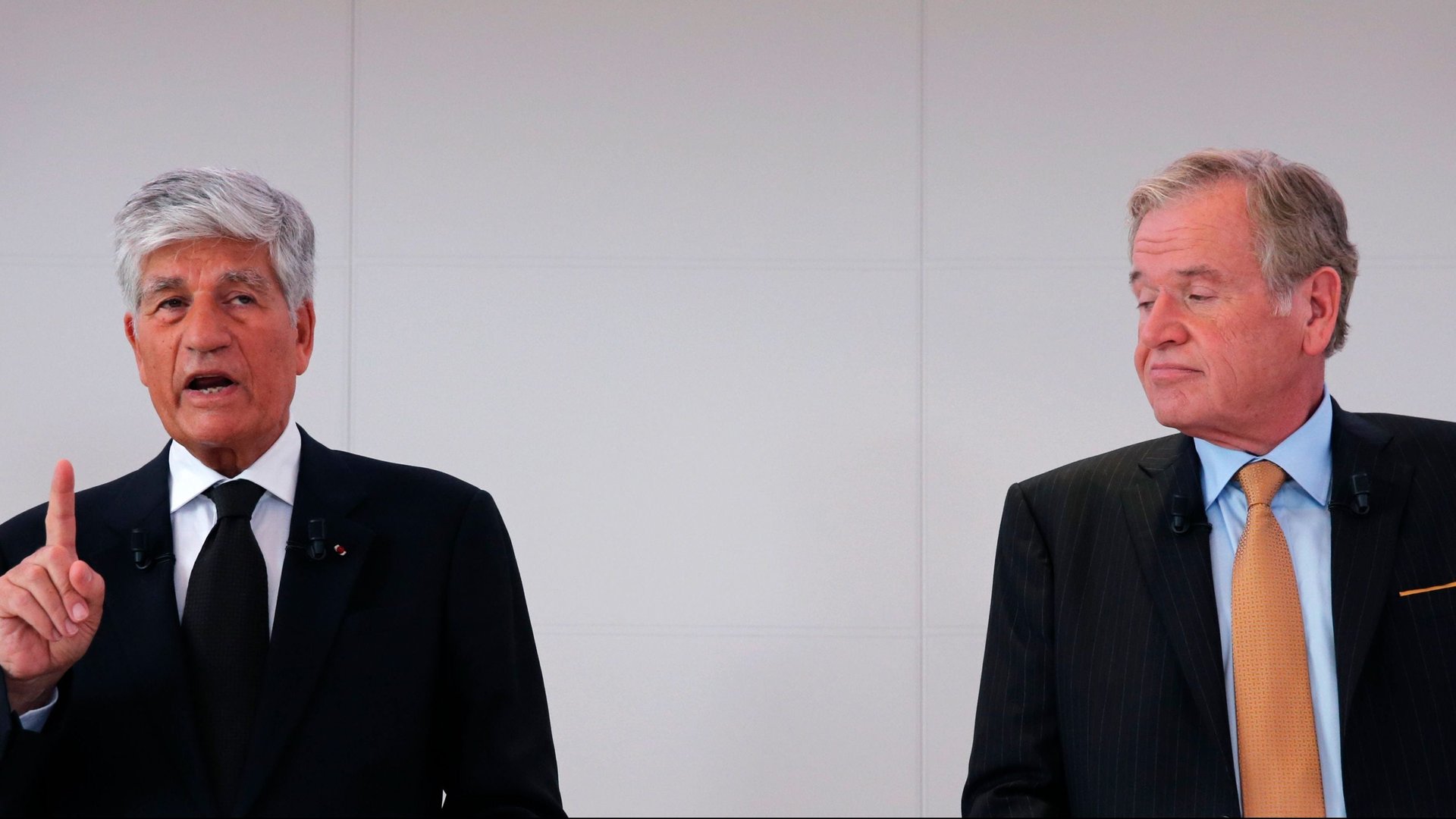A former rival had some catty parting words for outgoing WPP chief Martin Sorrell
Advertising titan Martin Sorrell’s abrupt resignation from his advertising conglomerate WPP elicited professional tributes from his friends, and very public schadenfreude from his rivals. Maurice Levy, the former CEO of the ad group Publicis, offered particularly choice comments on his competitor’s departure.


Advertising titan Martin Sorrell’s abrupt resignation from his advertising conglomerate WPP elicited professional tributes from his friends, and very public schadenfreude from his rivals. Maurice Levy, the former CEO of the ad group Publicis, offered particularly choice comments on his competitor’s departure.
This is the statement from him as reported in Drum, a marketing industry website in Europe:
“It is sad to see Sir Martin Sorrell resign amid the investigation into his alleged personal misconduct. Indisputably, Martin has built WPP as we know it: the world’s largest advertising company and a fierce competitor.
“He may have been lacking in vision on occasion, yet I retain that he shaped a truly world-class group.
“It is well known that our relationships were difficult but I have always had respect for the entrepreneur and chief executive: he always had the will to win making all competitions against him extremely interesting and challenging.
“By contrast, I would be hard pressed to say the same thing for the man and his behaviors: the press is full of examples.
“I wish Godspeed to him and to the people of WPP in this challenging period.”
Levy and Sorrell’s long and colorful history of publicly traded insults is often painted as the power moves of rival executives.
Indeed, a man snidely criticizing a person of the same gender is protecting his turf from a competitor—while a woman doing so is seen as “catty,” “bitchy,” and all the other adjectives that perpetrate the “Queen Bee” stereotype.
The stereotype of the undermining queen bee comes from evidence that aggression in women is more likely to take indirect forms like social exclusion, as opposed to the direct forms of physical and verbal aggression more often favored by men. But when researchers looked at the use of aggression in the workplace, men—unlike women—actually became more aggressive in all ways in male-dominated workplaces, engaging in more manipulative and undermining behavior toward other men than women do toward other women. Aggression by women in the study was unchanged regardless of the gender balance of their environment.